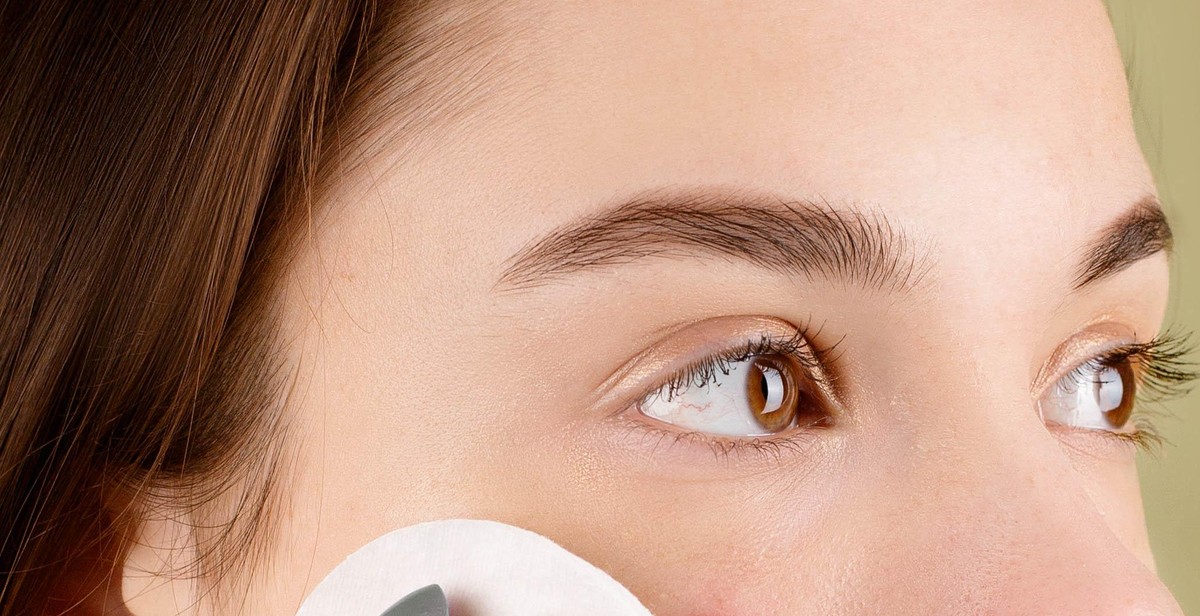How to Develop a Nighttime Skincare Routine for Different Skin Types: Nurturing Your Complexion
Developing a nighttime skincare routine is crucial for maintaining healthy and glowing skin. While it is important to care for your skin throughout the day, a nighttime skincare routine is essential for repairing and replenishing the skin while you sleep. During the night, the skin’s natural healing and regeneration process is at its peak, making it the perfect time to apply nourishing skincare products.
Why a Nighttime Skincare Routine is Important
A nighttime skincare routine is important for several reasons. Firstly, it helps to remove any dirt, oil, and makeup that has accumulated on your skin throughout the day. This is essential for preventing clogged pores and breakouts. Secondly, a nighttime skincare routine allows you to apply products that can penetrate deeper into the skin, as your skin is more receptive to active ingredients during the night. Finally, a well-rounded nighttime skincare routine can help to address specific skin concerns, such as wrinkles, fine lines, hyperpigmentation, and acne.
Creating a nighttime skincare routine that is tailored to your specific skin type is key to achieving optimal results. Whether you have oily, dry, combination, or sensitive skin, there are certain products and ingredients that will work best for you. In this article, we will guide you through the steps of developing a nighttime skincare routine that will nurture and enhance your complexion.

Determining Your Skin Type
Before developing a nighttime skincare routine, it is essential to understand your skin type. There are five different skin types: normal, oily, dry, combination, and sensitive. Each skin type has unique characteristics and requires specific care.
Normal Skin
If you have normal skin, you are lucky! Your skin is well-balanced, with a healthy glow and few blemishes. Normal skin is not too dry or too oily, and it has small pores. You can maintain your skin’s health by following a basic skincare routine.
Oily Skin
If you have oily skin, your skin produces excess sebum, which can lead to clogged pores and acne. Oily skin is shiny and has larger pores. To care for oily skin, you should use products that help control oil production and prevent breakouts.
Dry Skin
Dry skin feels tight and can be flaky or itchy. It produces less sebum than normal skin and may have small pores. To care for dry skin, you should use products that provide hydration and nourishment.
Combination Skin
If you have combination skin, you have both oily and dry areas on your face. Typically, the T-zone (forehead, nose, and chin) is oily, while the cheeks are dry. You should use products that balance your skin’s needs in different areas.
Sensitive Skin
If you have sensitive skin, your skin may react to certain products or environmental factors. Sensitive skin can be dry, oily, or normal, but it is prone to redness, irritation, and itching. You should use products that are gentle and formulated for sensitive skin.
How to Determine Your Skin Type
You can determine your skin type by washing your face with a gentle cleanser and observing your skin’s behavior after 30 minutes:
- If your skin feels tight and looks flaky, you have dry skin.
- If your skin looks shiny and feels oily, you have oily skin.
- If your skin feels comfortable and looks healthy, you have normal skin.
- If your T-zone looks oily, and your cheeks look dry, you have combination skin.
- If your skin is red, itchy, or irritated, you have sensitive skin.
Knowing your skin type is crucial for developing a nighttime skincare routine that works for you. By using products that are formulated for your skin type, you can achieve healthy, glowing skin.

Cleansing Your Skin
One of the most critical steps in any skincare routine is cleansing. Cleansing your skin helps to remove dirt, oil, and makeup that can clog your pores and lead to breakouts. It prepares your skin for the rest of your skincare routine, allowing your other products to penetrate deeper and work more effectively.
The Importance of Cleansing
Cleansing is essential for maintaining healthy, glowing skin. It helps to remove impurities that can cause inflammation and irritation, leading to a dull complexion. Cleansing also helps to balance your skin’s pH levels and prevent bacterial growth, reducing the risk of acne and other skin conditions.
Choosing the Right Cleanser for Your Skin Type
Choosing the right cleanser for your skin type is crucial. If you have oily skin, you’ll want to look for a cleanser that can control oil production and prevent breakouts. For dry skin, you’ll want to look for a gentle cleanser that won’t strip your skin of its natural oils. If you have sensitive skin, you’ll want to look for a fragrance-free and hypoallergenic cleanser that won’t irritate your skin.
Here are some common types of cleansers:
- Gel cleansers
- Foam cleansers
- Cream cleansers
- Oil cleansers
It’s essential to read the labels and ingredients lists to ensure that the cleanser is suitable for your skin type.
How to Properly Cleanse Your Skin
To properly cleanse your skin, follow these steps:
- Wet your face with warm water.
- Apply a small amount of cleanser to your fingertips and gently massage it into your skin in circular motions. Avoid rubbing too hard, as this can cause irritation.
- Rinse your face thoroughly with warm water, making sure to remove all the cleanser.
- Pat your skin dry with a clean towel. Avoid rubbing your skin, as this can cause irritation.
It’s essential to cleanse your skin twice a day, once in the morning and once at night, to keep your skin clean and healthy.
| Tip: | Use lukewarm water instead of hot water, as hot water can strip your skin of its natural oils. |
|---|

Toning Your Skin
Adding a toner to your nighttime skincare routine is essential to achieve a healthy and glowing complexion. Toners help to remove any remaining dirt, oil, and makeup residue from your skin, which can clog your pores and cause breakouts. They also help to balance your skin’s pH levels and prepare your skin for better absorption of other skincare products.
Why You Should Tone Your Skin
Toners provide numerous benefits to your skin, including:
- Removing any remaining impurities from your skin
- Restoring your skin’s pH balance
- Reducing the appearance of pores
- Hydrating and soothing your skin
- Enhancing the absorption of other skincare products
Choosing the Right Toner for Your Skin Type
Choosing the right toner for your skin type is crucial to achieve the best results. Here are some tips to help you choose the right toner:
| Skin Type | Toner Type |
|---|---|
| Dry | Look for toners that are alcohol-free and contain hydrating ingredients like hyaluronic acid or glycerin. |
| Oily | Look for toners that are oil-free and contain ingredients like salicylic acid or witch hazel to control oil production. |
| Combination | Look for toners that are gentle and balance your skin’s pH levels without stripping away natural oils. |
| Sensitive | Look for toners that are fragrance-free and contain soothing ingredients like aloe vera or chamomile. |
How to Apply Toner
After cleansing your face, follow these steps to apply toner:
- Take a small amount of toner on a cotton pad or your hands.
- Gently apply the toner all over your face and neck, avoiding the eye area.
- Allow the toner to dry on your skin before applying any other skincare products.
With these simple steps, you can easily add toning to your nighttime skincare routine and achieve a healthy and radiant complexion.

Moisturizing Your Skin
Moisturizing your skin is one of the most important steps in any skincare routine, especially at night. It helps to keep your skin hydrated, plump, and healthy-looking. When you sleep, your skin loses moisture, so applying a moisturizer before bed can help to lock in hydration and prevent dryness and flakiness.
Why Moisturizing is Important
Moisturizing is essential for maintaining healthy skin. It helps to prevent dryness, which can lead to irritation, redness, and even wrinkles. When your skin is dry, it can also become more susceptible to environmental damage and breakouts. Moisturizing regularly can help to keep your skin soft, smooth, and youthful-looking.
Choosing the Right Moisturizer for Your Skin Type
Choosing the right moisturizer for your skin type is important to ensure that your skin gets the hydration it needs without causing any problems. If you have oily skin, you may want to choose a lightweight, oil-free moisturizer that won’t clog your pores. If you have dry skin, you may want to opt for a richer, more nourishing moisturizer that can help to soothe and hydrate your skin. If you have sensitive skin, look for a fragrance-free moisturizer that is formulated for sensitive skin.
How to Properly Moisturize Your Skin
To properly moisturize your skin, start by cleansing your face and patting it dry with a clean towel. Then, take a small amount of moisturizer and apply it to your face and neck, using gentle, upward motions. Be sure to avoid the eye area and any active breakouts. Allow the moisturizer to absorb fully before going to bed.
If you have particularly dry skin, you may want to consider using a facial oil or serum in addition to your moisturizer. These products can help to provide an extra boost of hydration and nourishment to your skin.
Overall, moisturizing your skin is a crucial step in any nighttime skincare routine. By choosing the right moisturizer for your skin type and properly applying it, you can help to keep your skin looking and feeling healthy and radiant.

Treating Specific Skin Concerns
Acne-Prone Skin
Acne-prone skin requires special attention and care. To treat breakouts, incorporate products with salicylic acid or benzoyl peroxide into your nighttime skincare routine. These ingredients help to unclog pores and reduce inflammation.
- Cleanse your face with a gentle, oil-free cleanser
- Apply a toner to balance your skin’s pH level
- Use a lightweight moisturizer that won’t clog your pores
- Apply a spot treatment with salicylic acid or benzoyl peroxide to any active breakouts
Aging Skin
As we age, our skin begins to lose elasticity and firmness, leading to fine lines and wrinkles. To combat these signs of aging, use products that contain retinol or peptides. These ingredients help to stimulate collagen production and improve skin texture.
- Cleanse your face with a gentle, anti-aging cleanser
- Apply a toner to hydrate and plump your skin
- Use a moisturizer that contains retinol or peptides to improve skin texture
- Apply an eye cream to target fine lines and wrinkles around the eyes
Sensitive Skin
If you have sensitive skin, it’s important to use gentle, fragrance-free products that won’t irritate your skin. Look for products that contain soothing ingredients such as aloe vera or chamomile.
- Cleanse your face with a gentle, fragrance-free cleanser
- Apply a toner that’s free from alcohol and fragrances
- Use a fragrance-free moisturizer that’s gentle on your skin
- Avoid using any products that contain harsh ingredients such as alcohol or acids
